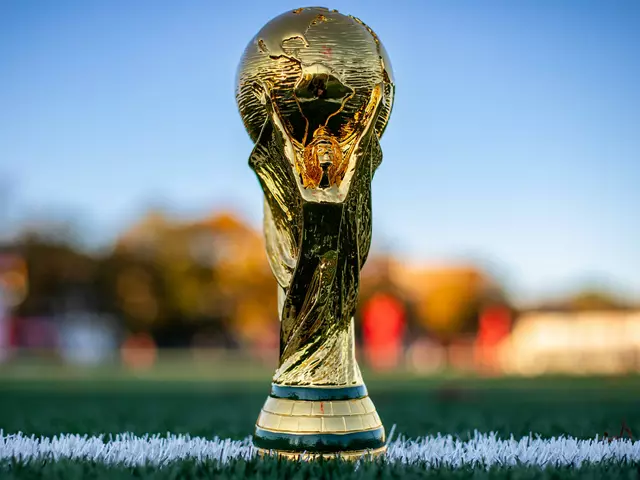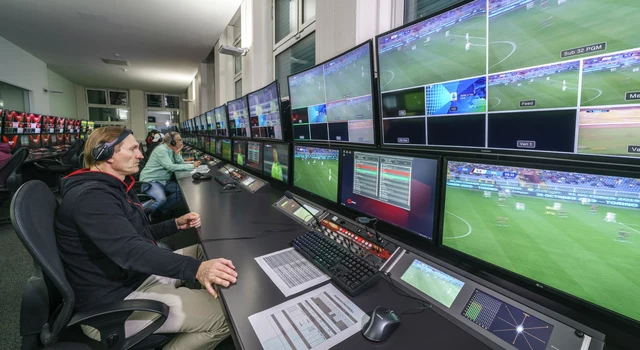Understanding Sports Betting and Match Fixing
Before diving into the sports that are the most difficult to fix a winner, it's crucial to understand the landscape of sports betting and match fixing. Sports betting is a billion-dollar industry, and it attracts a lot of people who want to make quick money. However, this has also led to the dark underbelly of match fixing, where outcomes are manipulated for financial gain. This malpractice has tainted the integrity of various sports, but there are some sports that are harder to fix than others due to their structure, rules, and number of participants involved.
The Unpredictability of Football
Football, or soccer as it's known in some parts of the world, is one of the hardest sports to fix. The reason for this lies in the unpredictability of the game. With 22 players on the field and a game that lasts for 90 minutes, it's almost impossible to control every aspect of the match. Moreover, goals are relatively rare in football, so even if a player is bribed to underperform, there's no guarantee that it would significantly affect the outcome of the game.
Complexity of Cricket
Cricket, with its complex rules and long match durations, also makes it difficult to fix a winner. There are so many variables in play - the pitch conditions, weather, individual performances, and more. Besides, cricket has a governing body that has set strict regulations and advanced monitoring systems to counter match fixing. This makes it extremely risky for anyone to try and manipulate the outcome of a cricket match.
Why Golf is Resistant to Fixing
One of the sports that is almost immune to match fixing is golf. The individual nature of the sport, combined with the high number of participants in any given tournament, makes it practically impossible to fix. Moreover, golfers are often scrutinized closely, both on and off the course, making any attempt at manipulation quite difficult to execute without being detected.
Boxing and Corruption: A Hard Battle
Boxing has had its share of controversies related to match fixing. However, this doesn't mean that it's easy to fix a boxing match. Quite the opposite - it requires a significant amount of planning and corruption, which can be hard to pull off without raising suspicion. Additionally, the unpredictability of boxing - where one punch can change the course of the match - adds another layer of difficulty to fixing.
The Dynamic Nature of Tennis
Tennis is another sport where it's challenging to fix a winner. The dynamic nature of the game and the fact that it's a one-on-one sport makes it hard to control the outcome. Attempting to fix a tennis match would require influencing both players, which is not just difficult but also risky, given the intense scrutiny players are under.
Why Motorsports are Hard to Rig
In motorsports, the variables are so many and so unpredictable that fixing a race is close to impossible. Weather conditions, mechanical issues, driver errors - all these factors can drastically change the course of a race. Moreover, teams closely monitor each other, and any irregularities are quickly spotted and investigated.
The Difficulty of Fixing Team Sports
Team sports like basketball and hockey are inherently difficult to fix. The sheer number of variables involved - from the players on the field to the coaches and referees - makes it extremely hard to control the outcome of a match. Any attempt at fixing would require a large-scale conspiracy, which would be difficult to pull off without being detected.
Fighting Match Fixing in Athletics
Athletics competitions, due to their individual nature and the large number of competitors, are very difficult to rig. There are so many variables at play – from the athlete's form on the day of competition to the weather conditions. Moreover, the strict anti-doping and anti-corruption measures in place make it a risky endeavor to attempt match fixing in athletics.
Conclusion: The Uphill Battle Against Match Fixing
In conclusion, while match fixing is an unfortunate reality in the world of sports, there are certain sports where it's particularly difficult to fix the outcome. This is due to various reasons - the structure of the sport, the number of participants, the level of scrutiny, and the unpredictability of the game. As fans, while we must remain vigilant against corruption, we can also take solace in the fact that most sports are quite resistant to match fixing.





